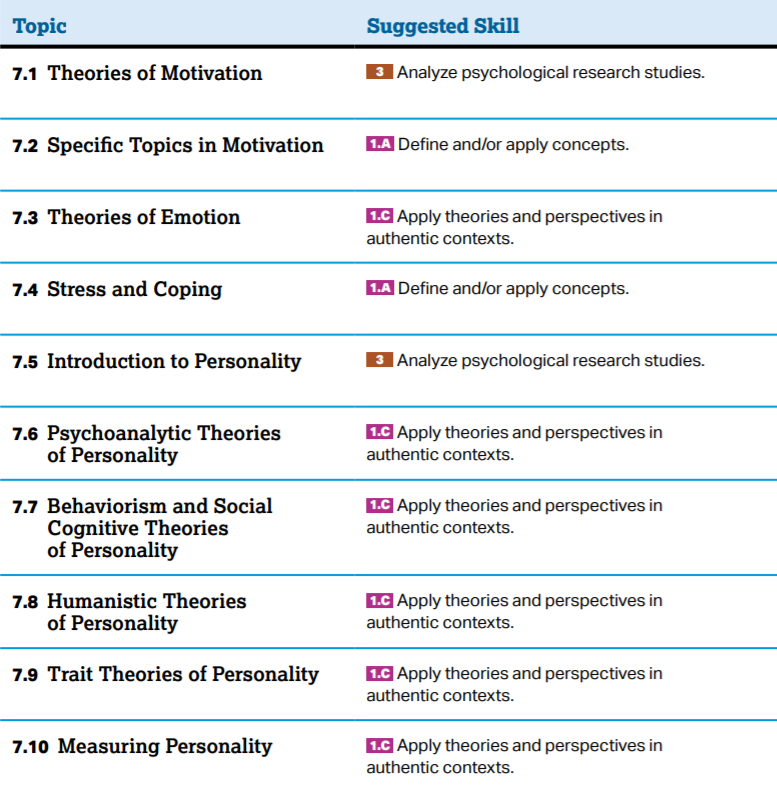Assignments
Helpful LinksVideos |
Unit 7: Motivation, Emotion, and Personality
AP Exam Weighting: 11-15% Psychologists use theory to categorize and explain different personalities. These explanations have been influenced by the various branches of psychology. Some psychologists study what motivates us and/or our emotional responses to experiences to understand our individual differences. Other psychologists seek to understand personality, including why different personalities exist, how they are developed, and if and how they change. Originating from the psychodynamic perspective, the study of personality involves consideration of behavior and mental processes and how they interact to produce an individual’s personality. A full explanation of personality also involves incorporating humanistic and social-cognitive perspectives from earlier units. Course Skills: Individual differences in various aspects of personality, motivation, and emotion are the focus of this unit. Students should be comfortable with identifying and explaining how biological structures and physiological processes help explain behavior or mental processes in relation to motivation, emotion, and personality. In addition, students will gain experience evaluating the strengths and weaknesses of psychological theories and perspectives relating to motivation and emotion. Students should be able to identify theories and perspectives about personality, describe their strengths and weaknesses, and explain how they apply to behavior and mental processes. While learning about the different ways personality can be measured, students will calculate the appropriate statistic for a given data set. Students should also be able to explain how data illustrates the different theories of motivation, emotion, stress, and personality. Preparing for the AP Exam: Students often confuse what it means to be panicked versus stressed. Teachers can provide students with case studies and/or real-world opportunities that will help them understand what it means to be stressed and how bodies respond to stress, as opposed to being panicked. Students should be able to compare the psychological and physiological responses to stress and panic. Students may struggle with accurately discussing concepts related to personality. A common mistake is to describe temporary aspects of a personality trait rather than personality characteristics. This can be addressed by providing students with multiple opportunities throughout the course to write about personality, ensuring that they are using terminology correctly and appropriately. Questions about research methodology and ethical research design in regard to this unit’s content will most likely appear on the exam. |
